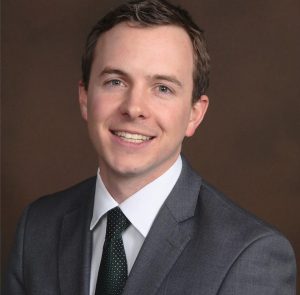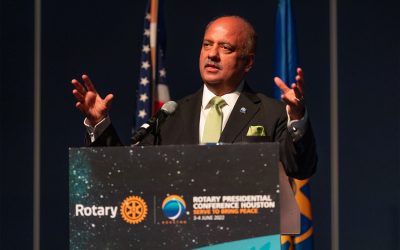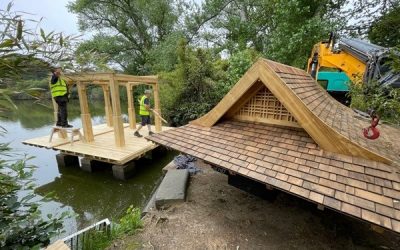As an American who relocated to the UK seven months ago, walking along the lovely public footpaths near my West Yorkshire home has become a cherished ritual.
The region’s trademark dry stone walls carve grey ribbons through the lush countryside, providing definition to the sea of endless green.
During a recent outing, the scene called to mind an old nursery rhyme:
There was a crooked man, and he walked a crooked mile.
He found a crooked sixpence upon a crooked stile.
He bought a crooked cat, which caught a crooked mouse,
and they all lived together in a little crooked house.
It dawned on me that what I had always thought to be a nonsensical little ditty was in fact an apt description of the Yorkshire countryside.
Only by being away from my homeland have I been able to realise how fractured society is becoming in the United States.”
When the Romans conquered Britannia, they imposed by sheer force of will their straight highways onto this curved island landscape. The ancient Roman roads that remain today lie in stark contrast with the meandering, native byways.
Some have interpreted the nursery rhyme to be a metaphorical description of England and Scotland achieving a fragile, but durable, union in the face of deep-seated differences.
Having embarked earlier this year on a sincere pursuit of the abstract and elusive concept of “peace” as a Rotary Peace Fellow at the University of Bradford, perhaps the nursery rhyme could also serve as an appropriate metaphor for the path we are all attempting to navigate on this little crooked planet we call home.
At a general level, the data is incontrovertible. Human civilization has never experienced a more prolonged period of prosperity, health, absence of world war, or overall stability.
The highway of modern human achievement is gilded with luxuries and security unimaginable to our progenitors. This fact cannot be overlooked, and the relative comfort we experience should be cause for daily, heartfelt gratitude.
But such a cold, data-driven assessment belies the persistent sense that our divisions are becoming more profound and irreconcilable.
Only by being away from my homeland have I been able to realise how fractured society is becoming in the United States. January’s armed assault on the US Capitol was a recent, violent manifestation of this burgeoning tribalism.


Christopher Pieper
But the very same sentiment plays itself out in countless ways every day and across all ideologies. It manifests itself throughout the world in online forums, public squares, offices, and homes.
Even small, seemingly innocuous matters have become politicised. There seems to be a veritable rush to place people into narrow and oversimplified traffic lanes based on politics, gender, skin colour, or religion.
And despite its promises, technology is only driving us further apart.
As sophisticated online algorithms tirelessly push us to more self-affirming content along the information highway, it is now easier than ever to become entrenched in our own perspectives and intolerant of the views of others.
The phenomenon converts painted traffic lane markings into unassailable concrete barriers. Ironically, in our haste to justify our supposedly informed perspectives of the human experience, we often do not take the time to experience the humans in our community and appreciate the richness of their diversity.
There seems to be a veritable rush to place people into narrow and oversimplified traffic lanes based on politics, gender, skin colour, or religion.”
Leaving my country and career for a time has provided a welcome chance to take stock of these trends. It has underscored how making rigid assumptions about those around us, like an ancient Roman highway, ignores the contours of the shared ground beneath our feet.
Taking the slip road to study and practice peace in the rolling countryside has also expanded my capacity to assist members of my family and communities on their own winding trails.
Along the way, I find hope in the fact that when people are in a room together, they often take time to listen and to care for those who surround them. They remember each other’s humanity, inherent dignity, and uniqueness.
In the end, peace may not be a destination but rather a way of being.
Which is why the journey is, after all, a bit crooked. Because deeply listening to, empathising with, and even, I dare say, feeling affection for those around us requires some meandering from our straightly formed paths and perspectives.










